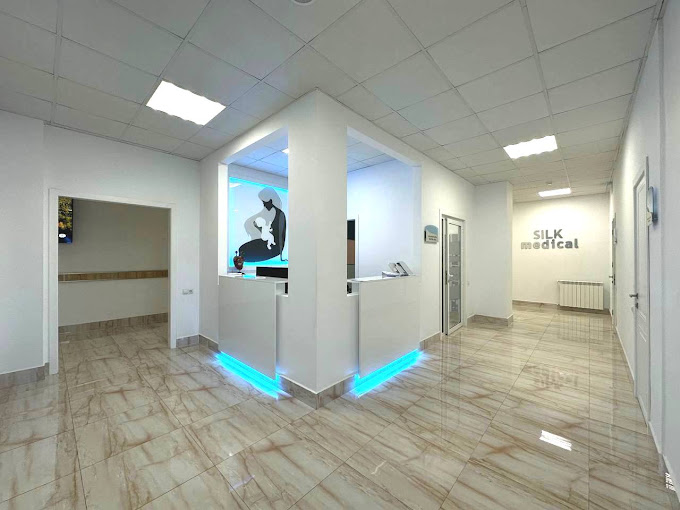Fertility treatments have become increasingly global, with patients seeking care beyond their home countries. In Tbilisi, Georgia, SILK Medical has emerged as a notable player in this field. The clinic specializes in IVF, surrogacy, and egg donation for international patients.
Georgia’s supportive legislation for fertility treatments, combined with lower costs compared to many Western countries, has attracted patients from diverse backgrounds. For context, while IVF treatments in the US typically cost $12,000 to $15,000 per cycle, SILK Medical’s programs start from $5,000.
The clinic has treated patients from over 20 countries, including the USA, China, Canada, and many European nations. This article examines SILK Medical’s achievements in the context of global fertility care advancements.
Overview of SILK Medical Services
SILK Medical focuses on three primary services: in vitro fertilization (IVF), surrogacy, and egg donation. These treatments address various fertility challenges faced by patients.
The clinic offers advanced techniques such as Preimplantation Genetic Testing for Aneuploidy (PGT-A) and Preimplantation Genetic Testing for Monogenic Disorders (PGT-M). PGT-A screens embryos for chromosomal abnormalities, while PGT-M detects specific genetic disorders. These techniques aim to improve the chances of a successful pregnancy and reduce the risk of genetic diseases.
Georgian legislation supports fertility treatments for foreign nationals. This legal framework recognizes intended parents as the legal parents from the moment of childbirth in surrogacy arrangements, simplifying the process for international patients.
SILK Medical Treatment Success Rates
SILK Medical achieved high success rates across our fertility programs. For women under 35 using their own eggs, the clinic has a 70% success rate. In guaranteed surrogacy programs, the live birth rate is 100%.
These figures exceed global averages. For comparison, the Society for Assisted Reproductive Technology reports that the average live birth rate for IVF in the United States is about 55% for women under 35.
Several factors contribute to these success rates. The clinic’s use of advanced technologies, personalized treatment protocols, and genetic screening techniques play a role. Of course, individual results may vary based on numerous factors including age, medical history, and specific fertility issues.
Technological Advancements in Fertility Treatment
SILK Medical employs several advanced technologies in its fertility treatments. Two notable examples are the AI-powered EmbryoScope and the IVFID Witness system.
The EmbryoScope is an incubator with a built-in time-lapse camera system. It continuously monitors embryo development without disturbing the culture environment. This technology allows embryologists to observe critical developmental milestones and select the most viable embryos for transfer.
The IVFID Witness system uses radio frequency identification (RFID) to track and match patient samples throughout the IVF process. This technology aims to eliminate the risk of sample mix-ups, providing an additional layer of security and peace of mind for patients.
These technologies, while not unique to SILK Medical, are not universally available. The combination of such advanced equipment is found in only about 10% of fertility clinics worldwide. The integration of these technologies into treatment protocols contributes to the clinic’s high success rates.
Research and Collaboration
SILK Medical contributes to the field of reproductive medicine through ongoing research. The clinic’s team has published over 50 scientific papers in peer-reviewed medical journals, focusing on IVF, genetic testing, and reproductive technologies.
Collaboration with leading medical centers enhances SILK Medical’s research capabilities. These partnerships facilitate knowledge exchange and the development of new treatment approaches. Recent collaborative projects have explored topics such as optimizing embryo selection techniques and improving outcomes for patients with recurrent implantation failure.
Research findings directly inform clinical practice at SILK Medical. For example, insights from studies on embryo development have led to refinements in culture conditions and transfer timing, potentially improving success rates.
Patient Demographics and Global Reach
SILK Medical serves a diverse international patient base. Patients from over 20 countries, including the USA, China, Canada, Brazil, UK, Germany, France, and Australia, have sought treatment at the clinic.
The growing number of international patients reflects several factors. Georgia’s supportive legal framework for fertility treatments, including surrogacy, attracts patients from countries with more restrictive laws. The combination of advanced medical care and lower costs compared to many Western countries also appeals to international patients.
SILK Medical has seen a 20% yearly increase in international patients. This growth has necessitated the development of specialized support services for foreign patients, including multilingual staff and assistance with travel arrangements.
Future Outlook
SILK Medical continues to expand its services and capabilities. Plans for the coming years include increasing treatment capacity to meet growing demand and introducing new fertility preservation options.
Emerging trends in fertility treatment shape SILK Medical’s future plans. The clinic is preparing to incorporate advancements in areas such as ovarian stimulation and endometrial growth with new protocols and exosomes. Innovative stem cell treatments are also being worked on, as these technologies become clinically available.
Ongoing staff training and technology upgrades remain a priority. SILK Medical regularly sends team members to international conferences and workshops to stay current with the latest developments in reproductive medicine.
The clinic also plans to expand its global reach, with several new branches being opened in Armenia and Kyrgyzstan. Local legislation there will allow to serve single individuals. In addition, the clinic will focus on improving treatment outcomes for patients with complex fertility issues. These efforts aim to contribute to the broader field of reproductive medicine while enhancing the care provided to SILK Medical patients.


